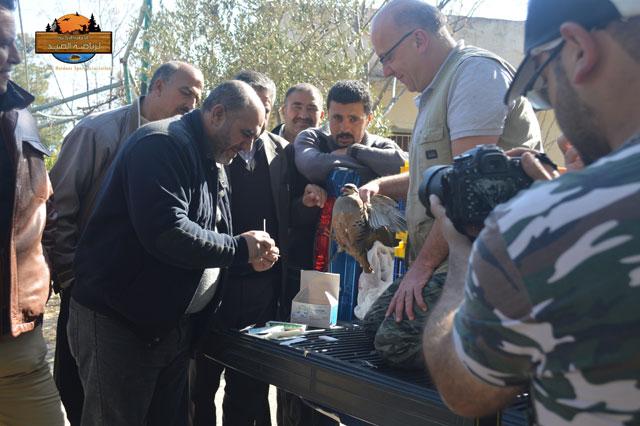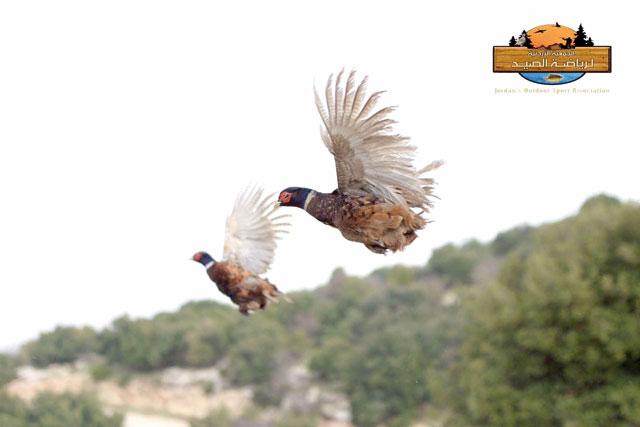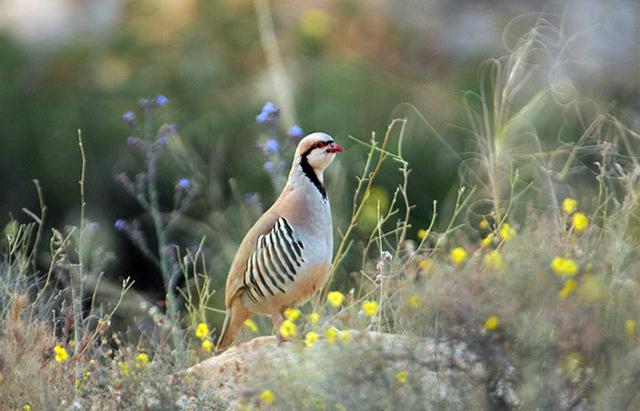You are here
Flock of endangered chukar released into the wild
By Hana Namrouqa - Jan 22,2017 - Last updated at Jan 22,2017

Members of the Jordan’s Outdoor Sport Association release a chukar bird into the wild on Friday (Photo courtesy of Jordan’s Outdoor Sport Association)
AMMAN — A new population of chukar, a game bird highly prized by hunters, has been released into the wild to offset its dwindling numbers, an activist and an official said on Sunday.
Jordan’s Outdoor Sport Association released the birds in the Kingdom’s northern forests on Friday with the aim of reversing the decline in the number of chukars in the wild, Ramzi Handal, president of the association, said.
The association embarked on the project to increase the number of chukars in the wild in 2015, when it released two groups of the bird, Handal said, adding that voluntary work is the basis of the association’s operations.
“Unfortunately, the hunting sport in Jordan is unorganised, which has left several local bird species, such as the chukars, endangered,” Handal told The Jordan Times.
He added that the association’s activities and projects are also meant to draw the attention of policymakers to the dangers threatening the country’s wildlife.
Last September, the Ministry of Agriculture issued a decision banning the hunting of chukar and sand partridge for three years across the Kingdom.
The decision was based on studies which indicated that the numbers of chukars and sand partridges in their natural habitat are declining due to multiple factors; mainly random hunting and the destruction of the birds’ habitats and nests by illegal hunters, according to the ministry.
The decline in the birds’ populations is happening across the Mediterranean region, according to the Royal Society for the Conservation of Nature (RSCN), which said that aside from hunting, climate change and rising temperatures, which shorten the birds’ mating seasons, also threaten the survival of chukars and sand partridges.
Chukars and sand partridges are found in rough topographical areas, and sightings of the two birds as well as reports from the RSCN’s inspectors have indicated that the decline in the number of the two bird species is higher in the Zarqa River basin, the society said.
Handal underlined that the project to increase the number of chukar in the wild is ongoing and more birds will be released into the wild in the future.
He noted that returning the numbers of chukar and partridge to sustainable levels, and creating a new generation of outdoorsmen that is committed to the protection of wildlife are among the association’s main goals.
The activist highlighted that all the birds were examined to make sure they were free of diseases before being released into the wild.
Meanwhile, Environment Ministry Spokesperson Isa Shboul highlighted that several bird species will become extinct if illegal and random hunting continues.
Shboul highlighted the importance of reinforcing laws regulating hunting activities and called on hunters to abide by regulations to protect forests and wildlife.
Related Articles
AMMAN — Hundreds of pheasants and chukars, game birds highly prized by hunters, were reintroduced to their natural habitat to offset their d
AMMAN — The Ministry of Agriculture has banned hunting of chukar and sand partridges, two bird species that are highly prized by hunters, an
AMMAN — For the first time in three decades, authorities have released hundreds of sand partridges into the wild in an attempt to reverse a
















